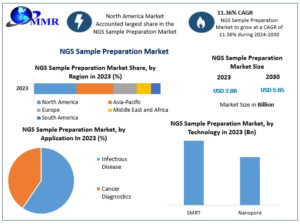
Medication may have an influence on sperm count and motility. Some medications used to treat high blood pressure, like ACE inhibitors such as captopril or enalapril, may reduce fertility potential by increasing erectile dysfunction; other medicines have more direct impacts on semen parameters.
Clomid, an oral medication designed to stimulate ovulation in women, has been demonstrated to significantly improve sperm concentration, motility and morphology for men with hormonally related low sperm counts. Zinc supplements may also help improve these indicators of health.
Clomiphene Citrate:
Clomiphene citrate, more commonly known by its brand name Clomid, is an anti-estrogen drug designed to induce ovulation in women while treating low testosterone and infertility in men. Additionally, studies suggest it may increase sperm count and motility – so infertility specialists often combine Clomiphene therapy with intrauterine insemination (IUI) treatments in order to maximize pregnancy chances.
The drug works by blocking estrogen from binding to receptors that trigger ovulation, breaking a negative feedback loop that normally prevents release of FSH and LH. A surge in LH then triggers production of testosterone from Leydig cells located within testes – further increasing production.
Your doctor is likely to prescribe Clomiphene for five days starting on Day 3 of your menstrual cycle, taking ovulation tests periodically throughout this period to monitor its effects and possibly arranging timed intercourse during this herbal medicine for timing.
Hormones:
Hormones are naturally produced chemicals that control the function of cells and organs. Produced by special cells called endocrine glands, hormones are released into the bloodstream in order to communicate with other parts of your body – any disruption can have adverse consequences, such as reduced fertility or even erectile dysfunction or low sperm count.
Natural remedies to increase sperm count and motility include lycopene, l-carnitine, selenium and zinc. Available as supplements as well as foods like tomatoes, oranges and red grapefruit that contain these elements can help increase both sperm count and motility by transporting fat for breakdown by the sperm cell into energy for energy use.
Sometimes cancer chemotherapy drugs can hinder sperm production. If this occurs, we can prescribe human menopausal gonadotropin, or hMG, which stimulates your testes to produce more testosterone and thus improve sperm quality.
Antibiotics:
Antibiotics can be essential in treating infections like strep throat or influenza; however, prolonged antibiotic usage can decrease sperm count and interfere with how sperm functions.
Antibiotics kill bacteria by either stopping their reproduction or making it difficult. Unfortunately, antibiotics also kill sperm cells by interfering with their growth or impeding reproduction – leading to lower counts and motility issues that interfere with fertilization.
Some antibiotics can have adverse impacts on by interfering with their production or restricting their swimming abilities or shapes, leading to decreased fertility potential. Furthermore, these drugs may increase oxidative stress which in turn damages DNA, further diminishing fertility potential.
Other medications can have an effect on count and motility, including antidepressants such as Bupropion or antipsychotics like Clozapine. One case study reported that taking an SSRI improved semen parameters when stopped (counts increased from 21 million/cc to 41 million/cc while motility improved from 10% to 75%); medications in this class include Amitriptyline, Desipramine, Doxepin, imipramine herbal medicine for low sperm count and Sibutramine.
Sperm Surgery:
There are various surgical treatments that can increase healthy sperm production or resolve blockages that impede transportation, and your doctor can perform them either at his clinic or at a hospital.
Varicocele ligation, a procedure which closes dilated veins of the pampiniform plexus, often improves semen characteristics such as count, motility and morphology.
Microscopic Testicular Extraction, commonly referred to as microTESE, is another surgical treatment designed to increase fertility. This procedure entails opening the scrotum and using an operating microscope to look for tubules that show promise for producing that can then be extracted via retrieval techniques. It can be performed under either general anesthesia or sedation anesthesia.
Low counts or motility may be caused by genetic disorders; when this happens, couples may use assisted reproductive technologies such as intracytoplasmic injection (ICSI). This technique utilizes high concentrations of healthy sperm for best sex timing products in pakistan.




